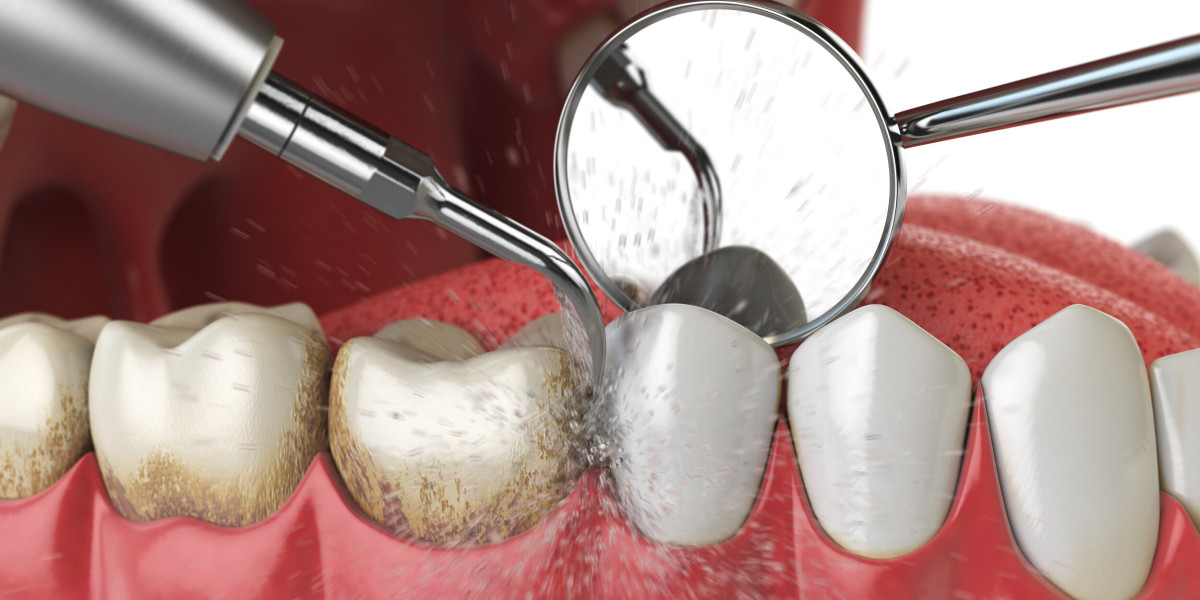Maintaining good oral hygiene is essential for a healthy smile, and professional dental cleanings play a significant role in achieving that. One common dental procedure, known as deep cleaning, helps remove plaque and tartar buildup beneath the gumline, preventing gum disease and improving overall oral health. After such treatments, many patients wonder about the proper care routine to follow — especially whether it’s safe and effective to use mouthwash right after deep cleaning. In this blog, we’ll explore this question thoroughly, providing helpful insights and guidelines.
What Is Deep Cleaning and Why Is It Important?
Deep cleaning, medically referred to as scaling and root planing, is a non-surgical procedure designed to clean the teeth and gums thoroughly. Unlike regular dental cleanings, deep cleaning targets the areas below the gumline where harmful bacteria accumulate and cause gum inflammation or periodontal disease. This procedure removes plaque, tartar, and bacterial toxins to help your gums heal and reattach firmly to your teeth.
If you are considering or have recently undergone deep cleaning, it’s essential to understand how to care for your mouth post-procedure to ensure optimal healing. This includes knowing when and how to use mouthwash as part of your daily routine.
Is Using Mouthwash Recommended After Deep Cleaning?
Immediately following a deep cleaning, your gums might feel tender, inflamed, or even slightly sensitive. This sensitivity is normal as your gums are healing from the removal of bacterial deposits and tartar. At this stage, the use of mouthwash can be beneficial but should be chosen carefully.
Most dentists recommend waiting at least 24 hours before using an antiseptic mouthwash after deep cleaning. This is because your gums need some time to start healing without the interference of harsh chemicals. Some mouthwashes contain alcohol or strong antibacterial agents that could irritate sensitive gum tissues.
Once the initial healing period passes, using an antibacterial mouthwash can help reduce bacterial buildup, soothe the gums, and promote better oral hygiene. However, it’s crucial to pick a mouthwash that is alcohol-free and designed for sensitive gums to avoid discomfort or delayed healing.
Choosing the Right Mouthwash Post-Deep Cleaning
A gentle, alcohol-free, and therapeutic mouthwash containing ingredients like chlorhexidine or essential oils can help keep your mouth clean and minimize infection risk after deep cleaning. Your dentist might even prescribe a medicated mouthwash for a specific duration post-procedure to aid healing.
It’s also important to maintain your regular brushing and flossing habits carefully without being too aggressive around the treated areas. Gentle care ensures your gums recover well and reduces the chance of complications.
When to Seek Professional Advice
If you experience severe pain, swelling, or prolonged bleeding after deep cleaning, consult your dentist immediately. These symptoms could indicate infection or other complications requiring professional attention.
Also, if you’re unsure about which mouthwash is best for you after deep cleaning, your dental care provider can guide you based on your specific condition.
Deep Cleaning and Polishing Services in Islamabad
If you’re looking for reliable deep cleaning services, consider expert dental clinics that offer comprehensive periodontal care. One such reputable option is deep scaling and polishing in Islamabad, where experienced dental professionals provide thorough cleaning to improve your gum health and prevent further complications. Proper post-care instructions, including mouthwash use, will be given to help you maintain optimal oral hygiene.
Additional Tips for Oral Care After Deep Cleaning
Avoid eating hard or crunchy foods for a few days to prevent irritation.
Stay away from smoking and tobacco products as they can delay healing.
Use a soft-bristled toothbrush to avoid damaging sensitive gums.
Drink plenty of water to keep your mouth hydrated and flush out bacteria.
Conclusion
Using mouthwash after deep cleaning can be safe and helpful for maintaining oral hygiene, but timing and product choice are crucial. Wait at least a day before incorporating mouthwash into your routine, and select a gentle, alcohol-free formula to support gum healing. Follow all dental care instructions provided by your dentist for the best results.
For those seeking expert deep cleaning treatments, professional clinics offering quality services like deep scaling and polishing in Islamabad are your best option. Remember, consistent care after the procedure ensures a healthier mouth and brighter smile.
If you want to learn more about dental treatments or schedule a consultation, contact Royal Cosmetic Surgery PK, where experienced dental professionals prioritize your oral health and well-being




